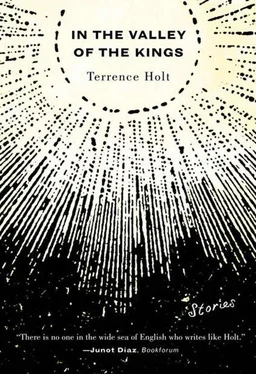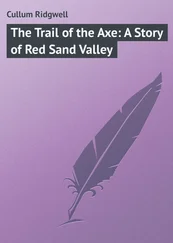
I have called it a tomb. More and more I doubt that is the proper term for the structure I seek. But I am yet baffled by what to call it: his retreat? his sanctuary? his redoubt? My horizon, the Nur-Mar Papyrus calls it, as it tallies the expense, the laborers and their rations, the sleds of undressed stone removed, the blocks brought in. My horizon: so all the kings, from the Third Dynasty on, referred to the tombs they prepared; here was the gate through which they would pass, like the sun at evening, into the land of the night. And like the sun, the term implied, the king would rise again.
Aahku-t ——, the papyrus calls it: the horizon of the nameless one; Aakhu-t heh , the eternal horizon, the tomb: Aakhu-t sheta-t, shet-t metcha : the secret horizon where the writing is read, as near as I can translate it: a word has been struck from the end of the phrase, and the last word could also be the word for a cutting tool, the verb “to destroy,” the name of a god, or an edict, decree, liturgy, book, writing, letter. And late in the papyrus, a new sign inserts itself into the sequence: “navel-of-the world” might be one reading: “bottomless pit” another; but an alternative reading, not entirely to be dismissed, is “noisome and trackless swamp.” In the last occurrence, the phrase seems to have become nonsense: I cannot interpret the glyphs, read them frontward or backward as I might.
Whatever he called it, for whatever purpose, it is clear that he intended to enter it, and I find no indication that he was going to wait to die before he did. His redoubt, I have come to call it, for it seemed that, in the final period of his reign, he felt pressed: the size of the work crew doubles, then doubles again. In the last year of its construction, perhaps forty thousand labored on the site; all, it seems, slaves from a country I have never heard of, and perhaps never existed: the name given in the papyrus is the word for “mute,” a class of servant employed in sensitive tasks, for which they qualified by having undergone glossectomy. In these passages, the handwriting hastens, slurs to hieratic, and the tale of construction stresses the speed urged on the crews. The work goes on — indeed its pace quickens, and the quantities of stone shifted, the provisions and furnishings crafted and stored, assume such magnitude that one cannot but doubt that the hyperbole typical of such accounts is at work: if the blocks involved are even a tenth the size of those from which the Pyramids were built, the manuscript describes a quarry large enough to produce a mountain range of Pyramids.
Then — curiously — the work of the construction, the physical details of it, disappear from the text, as if the decree of silence has caused the laborers to vanish. Perhaps the work was finished. There is no telling. The narrative breaks off with the phrase, “And then I caused—” I caused: ta un ; or the phrase may be ta hep , to hide, or ta hems , to dwell, to make inhabited. I caused, I had, I made habitable my horizon, my secret horizon of the cutting tool; I sank into the noisome and trackless swamp. A rebus that re-forms itself upon each reading; it is a translator’s nightmare.

With Budge’s device mounted beside me in the Rover I drove out into the desert, the screen flickering, distracting me from my road with glimpses of shapes moving beneath the ground — large, vague masses of rock sliding beneath rock. I don’t know to what use he intended to put his creation, but for me it was an answer out of a dream, removing every obstacle between me and my goal. And as I left populated roads, then roads entirely behind me, I knew that I had entered into a new epoch in Egyptology.
Three days I drove the upper reaches of the Valley and beyond, three days of wild shocks that I still feel echoing in my bones, of sun that blinded me, and sand that filled my mouth with the arid taste of my youth, the taste of Egypt, and I drove on. The whisper in my ear was urgent behind me; I drove on into the darkness that formed always ahead and always out of reach. On the second day, I bit my tongue clear through, spit the tip of it into the wind and drove on, mouth filling with salt and the sharp taste of pain.
A dozen, two dozen, half a hundred undiscovered tombs flickered on the screen as I rode over them with my wheels: small tombs, large tombs, tombs plain and elaborate of form, but nothing answered the size, the majesty, the ineffable difference that I would know in the one I sought.
On the evening of the third day, after the shadow of the Horn had climbed the eastern sky, half-maddened by three days’ search, I found it.
The image was vague, as if lying at a great depth, or in a stratum of rock less lucid than the rest. But it could be nothing other than the tomb of him I sought: Vast, it seemed a map of a world unrolled beneath me, bafflingly intricate, tantalizingly obscure.
So much I saw on first glance, and came near to flipping the Rover as I applied the brakes: I turned a full circle in the sand before stopping, one wheel slightly bent by a boulder. I restarted, moving slowly by headlight up and down the slope, from the base of the jagged cliff behind me to the rim where the plain fell steeply toward the Nile, trying to assemble a clearer map of the subsurface.
No clearer, except at

I have made my way.
I know thee and I know thy name.
Thy name is——, the unsounded,
Yea, who spake thy own name.
No things are unseen to the one who is unseen;
No names are unknown to the one whose name is nought.
I know thee and I know thy name.
Thy name is——.
Thy name is Ami-seshet;
Thanassa-Thanassa is thy name.
Thy name is Arethikasathaka ;
Npthysysiseremhesihrahaputchetef is thy

— I am a shepherd, sah.
— But you have no sheep.
My tongue, thick and bleeding, would barely form the words.
— This is true, sah. They are in the hills.
He waved a robed arm off to the darkened west, where I had thought only the Libyan desert lay. — With my son. I have come into the Valley for work.
I nodded and said nothing. At the word “work,” he had tried to catch my eyes: his were black pits, unfathomable beneath a ragged burnoose. In the white glare of the lantern, his face was half extinguished. The silence between us stretched, until I made an unnecessary adjustment to the lantern, which gave a popping noise and went out.
— That is better, sah.
The bedouin leaned back, and sighed as if he had made himself more comfortable against the rock. Again the silence returned, and with it my fear. Watching him settle, I realized I had held the same half-crouch since his arrival; my pen still poised over my notebook where I had been jotting — creature of habit — notes about the site. I folded the notebook, and snapped it in my shirt-pocket. I don’t know what became of the pen.
The man’s eyes followed my every move, two gleams shifting in two black pits. I wanted to keep him talking. Why, I didn’t know, only that it calmed me to hear him speak, and everything I learned about him helped me to believe he meant no harm. Under the sun, with the tourist buses winding through the gullies below, he would have seemed nothing more than an Arab shepherd. Now the boundaries of the known had shrunk to the sphere of a Coleman lantern’s light — and now even that had collapsed upon itself, leaving me outside. In the dark he became by turns a thief, a brigand, a ghost, a djinn, and then things for which I had no name.
Читать дальше














